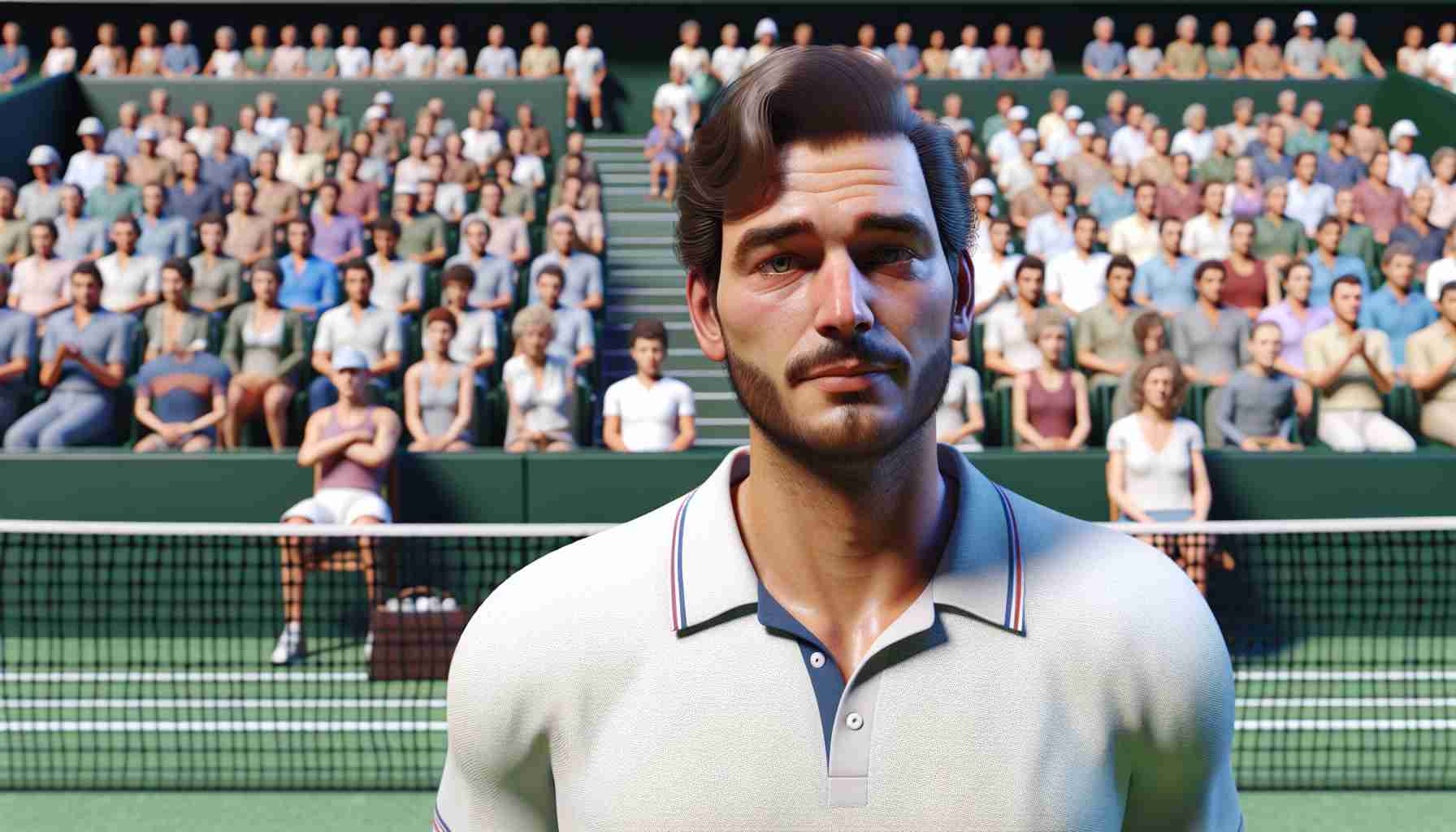The Australian Open is heating up, and all eyes are on Novak Djokovic. After an unexpected silence on the court following his matches, the tennis star might just return to the interview spotlight if he advances to the semifinals.
Recently, Djokovic chose to skip the traditional post-match interviews, prompting considerable speculation. The situation escalated when Channel 9’s presenter, Tony Jones, faced criticism from Djokovic, who deemed Jones’s remarks as disrespectful. In a surprising turn of events, Jones took to the air to express his remorse, clarifying that his intention was merely to provoke a light-hearted reaction, not to offend.
This back-and-forth has heightened the tension surrounding Djokovic’s participation in the tournament, as fans eagerly await his potential return to the post-match interview arena on Tuesday. The possibility of seeing Djokovic’s thoughts and reflections right after a match adds an intriguing layer to the viewing experience.
The Australian public is now left wondering how Djokovic will respond to this moment of reconciliation. Will he embrace the customary post-match interview again? Only time will tell as the championship progresses. One thing is certain: Djokovic’s next moves, both on and off the court, will continue to captivate audiences worldwide.
Impact of Novak Djokovic’s Silence: A Broader Perspective
The current drama surrounding Novak Djokovic at the Australian Open transcends tennis, touching on broader sociocultural dynamics and the intricate relationship between sports and media. The tension spurred by Djokovic’s decision to skip post-match interviews highlights a growing discontent with media interactions. This phenomenon reflects a larger societal trend where public figures increasingly question their engagement with the media, desiring more control over their narratives.
Such moments can influence public sentiment and challenge the established norms of sports culture, where post-match interviews are viewed as an integral part of the experience for fans and broadcasters alike. These developments may signal a change in how athletes navigate fame, potentially leading to a wave of athletes favoring privacy over traditional media engagements, thereby altering the sports commentary landscape.
Furthermore, Djokovic’s situation raises implications for his sponsors and the broader global economy of sports marketing. As athletes’ reputations can significantly influence brand partnerships, any negative press may endanger lucrative endorsements. Likewise, there could be environmental considerations tied to hosting major sporting events, as increased viewership and fan attendance often lead to concerns over sustainable practices in event management.
As trends evolve, the sporting world will watch closely to see whether Djokovic reconciles with the interview format, potentially paving the way for other players to adopt similar stances. The long-term significance of this situation might challenge and transform the ever-changing relationship between athletes, media, and their audiences.
Novak Djokovic’s Australian Open Drama: What’s at Stake and What’s Next?
Overview of Djokovic’s Current Situation
The Australian Open 2023 has become a focal point for tennis fans and analysts alike, particularly concerning the behavior and future decisions of Novak Djokovic. As Djokovic navigates the tournament, speculation about his choices—especially regarding post-match interviews—has become a hot topic.
The Importance of Post-Match Interviews
Post-match interviews are crucial in professional sports, offering insights into athletes’ strategies and emotions. They enhance viewer engagement, allowing fans a glimpse into the mindset of their favorite players. Djokovic’s departure from this tradition has raised eyebrows and created a discourse on athlete communication and media interactions.
Analysis of the Controversy
Djokovic’s recent silence during post-match talks has set off a swirl of discussions around respect and media responsibility. The backlash faced by Channel 9 presenter Tony Jones illustrates the delicate balance between media commentary and athlete reception. This incident highlights the growing tensions between players and media personalities, prompting questions about how athletes manage public relations during high-stakes competitions.
Recap of Recent Events
After Djokovic skipped the customary interviews following his matches, criticism mounted concerning his choice. Tony Jones’s public apology reflects a broader theme in athletics: the importance of mutual respect between athletes and journalists. The anticipation surrounding Djokovic’s potential return to interviews provides a narrative thread that could influence both his public image and media relations in future events.
Potential Outcomes and Implications
1. Return to Interviews: If Djokovic chooses to resume post-match interviews after the semifinals, it could signify a reconciliation with the media and a willingness to engage with fans more openly once again.
2. Continued Silence: Opting to maintain his distance may indicate a strategic retreat, impacting his relationship with the media—and potentially his fanbase.
3. Fan Reactions: The Australian public, along with tennis fans worldwide, is keenly observing how Djokovic navigates this incident, making his decisions a matter of public interest that could influence his standing both on and off the court.
Market Trends and Player Media Relations
The tennis world is evolving, with increasing scrutiny on how players manage their public relations. This incident may set a precedent affecting athlete-media relationships, prompting other athletes to reconsider how they approach interviews and public engagements.
Conclusion
Ultimately, the future of Novak Djokovic’s media interactions during the Australian Open remains uncertain. His choices will not only impact his immediate experience in the tournament but may also redefine athlete communication standards in professional sports.
For more insights on tennis and athlete media relationships, visit the Australian Open website.
